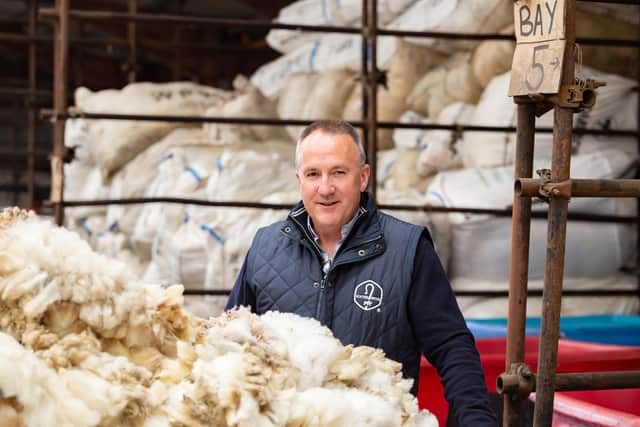Sheep industry must be supported into the future
and live on Freeview channel 276
“There are no specific support proposals for sheep within the package of post-Brexit support measures identified by former farm minister Edwin Poots,” he said.
“This is fundamentally wrong. We are already seeing farmers leaving the sector and I fear this trend will gather further momentum during the period ahead.”
Advertisement
Advertisement
Kelly is also concerned about the age profile of farmers within the sheep industry.


“There are no young people coming into the industry. And many of those working with sheep now will be retiring in the near future.”
Kelly believes that the introduction of a sheep welfare payment system, similar to that already operating in the Republic of Ireland, could deliver much needed financial support for sheep farmers.
“An annual payment in the region of £12/ewe would make all the difference in this regard,” he said.
Advertisement
Advertisement
“I am fully aware of the fact that the Ulster Farmers’ Union has already met with Department of Agriculture, Environment and Rural Affairs officials on these matters.
“At the end of the day, this all comes down to budgets. However, where sheep are concerned, the need for money to future proof the sector is acute. And the clock is ticking.”
Kelly’s comments coincided with the confirmation from Ulster Wool of the prices being paid to members for last year's wool clip.
Members will be receiving a personalised letter in mid-May confirming the total value of their 2022 wool with core grades achieving 30p/kg and Blackface wool 20p/kg: exact prices will depend on grade and type of wool.
Advertisement
Advertisement
Fleeces from organic flocks attract a premium of 70p/kg for core types.
Andrew Hogley, CEO, Ulster Wool commented: "We understand that prices will be disappointing to our members, particularly on the back of falling lamb prices and other difficulties in the wider industry.
Turn to page 6
“We are frustrated too. Global prices have been under pressure in recent months and this, alongside the cost inflation experienced by the wider industry, had created 'significant difficulties' in the marketplace.”
He continued: "As a farmers cooperative, the returns we offer our members are determined by the value we can achieve for the wool we sell on their behalf and the costs of bringing that wool to market.
Advertisement
Advertisement
"There had been positive signs of recovery in the wool market after the devastating impact of the Covid pandemic.
“However, the war in Ukraine and subsequent spike in energy prices reversed much of those improvements.”
According to Hogley, high energy costs and consumer confidence had led to a very challenging environment for all raw material suppliers including wool.
He further explained: "The impact of high energy prices on the cost of processing wool has been enormous.
Advertisement
Advertisement
"Commercial scouring tariffs have increased by 30% over the past 12 months." Increased haulage rates and diesel prices had also been a significant challenge to the business, he said.
Despite these difficulties, Ulster Wool has still been able to sell the wool achieving prices comparable to those in New Zealand.
Andrew Hogley continued: "We are optimistic about the future and believe there is much to be positive about.
“Our focus on the environmental and sustainability credentials of wool from Northern Ireland is gaining traction.
Advertisement
Advertisement
“Over the past year the number of brands with verified product ranges has increased to more than 100.
"Increasingly we are seeing manufacturers willing to pay a premium for traceable wool and we have invested in our systems that give full traceability back to the farm."
He concluded: “Exploring new uses and markets for wool was ongoing too. We encourage sheep farmers to continue supporting us as we continue to navigate these difficult times.
“We truly believe that with continued effort, determination, and innovation we can build a positive future for wool. But we all need to work together."